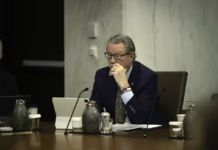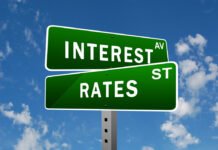On Wednesday, the U.S. dollar registered a marginal decline, coming on the eve of a crucial interest rate verdict by the U.S. Federal Reserve. Concurrently, the British pound experienced a drop, influenced by rising speculations that the Bank of England (BoE) might momentarily halt its consecutive interest rate augmentations.
The U.S. dollar index, a barometer for the currency’s strength relative to a group of other leading currencies, reported a decrease of 0.2%, standing at 104.86. This follows after an impressive record last week when the index increased for the ninth consecutive week – its most extensive progressive streak in almost ten years. Such an upturn is attributable to the tenacious U.S. economic growth, which has spurred a resurgence of the dollar. Nevertheless, this rally could face a trial based on the outcomes of the impending Federal Reserve’s decision and the subsequent comments.
Stuart Cole, the principal macroeconomist at Equiti Capital in London, weighed in on the U.S. economy’s performance. He remarked, “There has been noticeable astonishment in the market regarding the robustness of the U.S. economy.” Delving into the past, he observed that many anticipated the Federal Reserve to initiate rate cuts at this juncture. Contrary to these expectations, such actions haven’t materialized, which he noted with a hint of surprise.
The prevalent market sentiment is largely geared towards the anticipation that the Federal Reserve will retain the current rates, which range between 5.25% to 5.50%. This has cast the spotlight on the forward guidance to be issued by the central bank. Cole added to the discourse, suggesting, “While the market leans towards a possible hiatus, the predominant language appears to maintain a hawkish tint.” He highlighted a potential risk where a dovish approach might inadvertently weaken the USD.
On the British front, the pound’s valuation underwent fluctuations and recorded a drop of 0.06% against the dollar, settling at $1.24. This occurred post the pound’s dip to 1.2334, marking its four-month nadir. The trigger for this was the revelation that the UK’s inflation rate in August wasn’t as high as previously predicted.
Data released on Wednesday showed that the British annual Consumer Price Inflation (CPI) unexpectedly settled at 6.7% for August. This came as a precursor to the BoE’s potential interest rate elevation decision. Interestingly, economists who shared their insights with Reuters had projected the CPI to escalate to 7.0%, a jump from the 6.8% recorded in July.
Dominic Bunning, who helms European FX Research at HSBC, offered his analysis. He pinpointed the subdued inflation rates in core sectors and services as potentially influencing the BoE’s decision, possibly capping the hike to a mere 25 basis points on the upcoming Thursday. Bunning hypothesized, “The market is gradually shifting its perspective. The next notable move concerning UK rates might be a decrease rather than an increment.” He further speculated that this could pull the GBP down, especially in comparison to the USD.
Recent trends in the money markets indicate a shift in sentiment regarding the BoE’s decision. As of now, there is a near 60% probability that the BoE will retain the current rates after 14 consecutive hikes dating back to December 2021. Just a day earlier, the odds favoring a pause from the BoE were as low as 20%.
On the international front, the Japanese yen remains a focal point. The currency’s dynamics are drawing attention due to fresh insights shared by U.S. and Japanese authorities about potential market interventions. The yen, prior to the Federal Reserve’s announcement, strengthened by 0.07% against the dollar, standing at 147.71 per dollar.
Masato Kanda, Japan’s premier financial diplomat, repeated his warnings on Wednesday. He emphasized that Japanese decision-makers are in constant dialogue with their U.S. counterparts and other global policymakers. They are observing currency markets with heightened vigilance. The U.S. Treasury Secretary, Janet Yellen, when questioned about a possible yen acquisition intervention by Japan, responded that the U.S. reaction would hinge on the specifics of the situation.
Read More:





